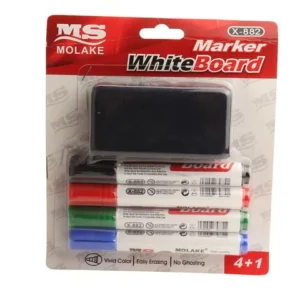Net 30 accounts are transforming the realm of small business financing, providing an underutilized yet powerful tool for managing financial operations. At the heart of this strategy lies the opportunity to acquire goods and services immediately while deferring payment for 30 days, without incurring interest.
This unique arrangement not only enhances cash flow management but also boosts credit standing, and fosters strong vendor relationships, crucial for business growth and resilience.
As we delve deeper into the benefits and strategic uses of Net 30 accounts for small business, it becomes clear why they are being hailed as a game-changer in the financial toolkit of small businesses.
Understanding Net 30 Accounts for Small Business: A Deeper Dive
 Image courtesy: Pexels
Image courtesy: Pexels
Definition and Basic Mechanics
Net 30 accounts are a form of trade credit that allows businesses to purchase goods or services and pay the invoice fully within 30 days. This type of arrangement can provide businesses with crucial financial flexibility by enabling them to manage funds without immediate expense.
The basic mechanics involve the vendor providing the product or service upfront, while the business agrees to clear the due balance within the specified period, typically without interest. This setup can significantly benefit cash-strapped small businesses or those looking to maintain a fluid cash flow for other operational necessities.
Benefits for Small Businesses
There are several compelling benefits for small businesses when using Net 30 accounts. Firstly, these accounts aid in cash flow management by allowing businesses to utilize and redistribute their available funds more effectively in the immediate term. This can be crucial for covering other critical business operations such as payroll, inventory purchases, or marketing activities.
Additionally, Net 30 accounts for small business help establish and strengthen vendor relationships through consistent and reliable payment practices, potentially leading to more favorable terms or discounts in the future.
Most importantly, when managed correctly, these accounts assist in building a strong credit history for businesses, which is beneficial for acquiring further credit or loans.
Cash Flow Optimization and Creditworthiness Enhancement
Impact on Cash Flow Management
Using Net 30 accounts for small business strategically can smooth out cash flow fluctuations by deferring payments until a later date, allowing businesses to align their expense outflows with their revenue inflows. For businesses with uneven sales cycles, such as seasonal businesses, this can be particularly advantageous.
Managing cash flow effectively not only ensures operational stability but also provides businesses the capacity to capitalize on growth opportunities without the constant pressure of immediate cash availability.
Boosting Business Credit Score
Net 30 accounts for small business play a significant role in enhancing a business’s credit score. Each timely payment is often reported to commercial credit bureaus, contributing positively to the business’s credit history.
A higher credit score can open up a plethora of benefits, including lower interest rates on loans, increased credit limits, and more favorable repayment terms. This can significantly reduce the cost of capital and increase the avenues of finance accessible to a business, aiding in its growth and expansion capabilities.
Long-term Financial Advantages
The long-term financial advantages of using Net 30 accounts extend beyond improved cash flow and credit scoring. They also include greater financial leverage and reduced reliance on more expensive borrowing options like credit cards or short-term loans, which typically carry higher interest rates.
By freeing up capital that would otherwise be tied up in immediate payment obligations, businesses can reinvest in areas that offer strategic growth potential, such as market expansion, research and development, or enhanced operational capabilities.
Additionally, the disciplined use of Net 30 accounts instills robust financial practices within the business, preparing it to manage more substantial credits effectively in the future.
Strengthening Vendor Relationships through Net 30 Accounts
Building Trust with Timely Payments
Using Net 30 accounts effectively can substantially improve your business’s credibility and trustworthiness in the eyes of suppliers and vendors. Making timely payments under these terms not only demonstrates your business’s reliability but also enhances your reputation. This track record is essential because it reflects your company’s financial discipline and commitment to fulfilling obligations. In doing so, you create a foundation of trust that can lead to more favorable business interactions and long-term partnerships with vendors.
Opportunities for Preferential Treatment and Better Terms
Regular and prompt payments on Net 30 accounts can lead to preferential treatment from vendors. Suppliers are more likely to offer better terms, such as extended payment periods, lower prices, or higher credit limits, to dependable clients.
These enhanced terms can significantly improve your business’s operating leeway and financial flexibility, allowing you to leverage better opportunities:
– Access to bulk purchase discounts
– First choice on limited stock items
– Priority delivery and processing
Such benefits not only strengthen your market position but also provide a competitive edge that can be pivotal in scaling your business operations.
Strategic Vendor Selection
Choosing the right vendors to set up Net 30 accounts with is crucial. It involves assessing potential suppliers for reliability, product quality, alignment with business needs, and their propensity to report to credit bureaus.
By strategically selecting vendors who not only provide quality goods and services but also contribute positively to your credit history, you amplify the benefits of Net 30 accounts. This careful selection ensures both operational efficiency and creditworthiness enhancement.
The CEO Creative: A Case Study in Net 30 Accounts
Overview of The CEO Creative’s Net 30 Offering
The CEO Creative provides a distinctive Net 30 account option tailored specifically for small businesses and entrepreneurs aiming to stabilize and grow their financial operations without immediate cash expenditure. Their program is designed to facilitate small business growth by offering flexible payment terms, which help businesses manage cash flow more effectively while accessing needed resources and services.
Features and Benefits of Their Net 30 Account
The CEO Creative’s Net 30 accounts boast several appealing features aimed at supporting small businesses:
– A credit limit up to $5,500, allowing substantial purchasing power for operational needs
– A modest annual membership fee of $49, which unlocks additional resources and tools
– An easy approval process that accommodates businesses with minimal credit history
These features enable businesses to not only meet immediate operational demands but also engage in strategic planning and development activities without stringent financial constraints.
Testimonials and Success Stories
Numerous businesses have leveraged The CEO Creative’s Net 30 accounts to catalyze growth and improve their financial health.
Here are a few examples:
– A startup that utilized their Net 30 account to streamline inventory acquisition pre-launch, positively impacting their readiness and market entry speed.
– An established small business that adopted the Net 30 account to bridge cash flow gaps during off-peak seasons, maintaining operational continuity without resorting to high-interest loans.
These stories highlight the tangible impacts of effectively utilizing Net 30 accounts, underscoring their potential as a critical tool in the financial strategy of small businesses. The insights provided by these cases shed light on the practical benefits and strategic advantages that come with the thoughtful use of trade credit.
Strategic Financial Management with Net 30 Accounts
Net 30 accounts offer compelling financial management strategies for small businesses. These accounts, by allowing a 30-day payment deferral, provide essential breathing room in a company’s budget. This flexibility can be tactically applied to enhance business operations and financial health.
Budgeting with Net 30 Accounts
Utilizing Net 30 accounts allows businesses to better budget their monthly expenses by aligning purchases and payment schedules to optimize cash flow. For instance, acquiring necessary goods or services at the beginning of the payment cycle and deferring these payments can free up immediate cash for urgent needs or unexpected opportunities. This strategy ensures that operational funds are utilized efficiently, maintaining liquidity and financial stability. Essentially, Net 30 accounts act as a no-interest credit line, making them a savvy budgeting tool for mindful entrepreneurs.
Aligning Payments with Revenue Cycles
Net 30 accounts can be particularly beneficial for businesses that experience seasonal fluctuations or variable revenue cycles. By aligning payment schedules with revenue inflows, businesses can avoid cash crunches that jeopardize day-to-day operations. This strategic alignment ensures that payments are made during peak revenue periods, thereby minimizing the risk of late payments or cash flow interruptions, which are often a significant concern for small businesses.
Reducing Reliance on High-Interest Debt
One of the financial advantages of using Net 30 accounts is the reduction in the necessity for high-interest debt options such as credit cards or short-term loans.
Businesses can use these accounts to handle immediate needs without incurring high-interest charges, thus preserving more of their revenue for growth and investment. This strategic use of credit can be fundamental in maintaining healthy operational budgets and minimizing unnecessary debt burdens.
Long-Term Success with Net 30 Accounts
 Image courtesy: Pexels
Image courtesy: Pexels
Implementing Net 30 accounts into long-term business strategies can significantly contribute to sustained financial health and business growth. However, proper management and disciplined use are crucial to leveraging these accounts effectively.
Optimal Use of Net 30 Accounts in Business Strategy
To effectively integrate Net 30 accounts into a business strategy, it’s important to assess how these accounts can support broader financial goals and operational needs. Businesses should use these accounts not just for ease of purchasing, but as a strategic tool to enable better investment in growth opportunities, such as marketing initiatives, technological upgrades, or new product development.
Additionally, building solid relationships with vendors who report to credit bureaus can improve a business’s credit score, further enhancing its financing capabilities.
Avoiding Common Pitfalls and Maintaining Financial Discipline
While Net 30 accounts provide many advantages, they also require disciplined management to avoid common pitfalls such as overspending or becoming overly reliant on credit. Establishing clear budgeting parameters and regularly reviewing financial commitments are essential practices. It’s also critical to thoroughly understand the terms of each Net 30 agreement to ensure that no hidden fees or restrictive conditions could undermine financial stability.
Ensuring Timely Payments
To fully benefit from Net 30 accounts, it is crucial that businesses maintain an impeccable payment record. Timely payments not only help to avoid late fees and potential damage to business credit scores but also strengthen vendor relationships. Implementing reminders and automated payment systems can help manage deadlines effectively and ensure that every account is settled on time.
In conclusion, when used wisely, Net 30 accounts are powerful tools that can improve a small business’s ability to manage finances and support sustainable growth. Proper oversight, vigilant financial management, and strategic planning are key to maximizing the benefits of Net 30 accounts, turning them into a cornerstone of a thriving business’s financial strategy.
Conclusion
Net 30 accounts can serve as a significant advantage for small businesses looking to improve their cash flow management, build stronger credit profiles, and foster valuable vendor relationships.
These accounts allow businesses to purchase goods or services and defer payment for 30 days, providing crucial financial flexibility without the burden of immediate outlays. This can be especially beneficial for businesses in their growth phase where managing operational cash flow is critical.
For small business owners, the strategic use of Net 30 accounts can be transformative. It allows for smoother cash flow management, reducing the reliance on high-interest debt and enabling investment in growth opportunities that might otherwise be unaffordable.
When used responsibly, these accounts help build a track record of financial reliability that is highly regarded by creditors and suppliers alike.
However, the effectiveness of Net 30 accounts for small business hinges on careful selection of vendors, financial discipline to avoid overspending, and punctuality in payments to avoid penalties and protect credit standing.
The CEO Creative’s Net 30 program illustrates the added value such accounts can offer, providing not just credit but also access to business tools, resources, and networking opportunities that can support long-term business growth and success.








